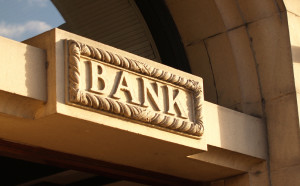
One of the most important relationships that all business owners will have during the life of their business will be the one they maintain between themselves and their bank.
The banking relationship between business owner and their bank is not only important because it is the place where deposits and withdrawals are made. It is important because ultimately, the banking institution is the place that the business trusts to hold and steward their funds. It is important that a bank is chosen soberly and wisely.
There are a number of things that business owners should consider when they are seeking out a business relationship. Here is an important one:
Bank Size: When choosing a bank, it is important to consider its size. Are you a small, community-focused business? Maybe you will want a local bank with personalized attention. Or do you have a lot of corporate needs? Or need access to the same bank as you travel? Maybe you should consider a boutique bank that can give you specialized attention or a larger, national chain.
Elizabeth Wellington at grasshopper.com shares a number of very useful tips for evaluating a banking relationship in her article entitled “How to Choose a Bank for your Small Business“. Here is a partial list of some of the things Wellington says:
Identify Your Needs
The most important part of selecting a bank is identifying exactly what you will need. Investigating the services you will need to rely on every day gives you a solid foundation for online research and in-person conversations. Take a look at these common considerations.
Basic Checkings and Savings
When discerning the optimal checkings and savings accounts for your business, think about the following:
- The number of transactions you will make a month
- The lowest balance you will keep in the account
- Your budget for banking costs, fees, etc.
A lot of banks offer low-cost accounts with high penalties for surpassing transaction limits or falling below minimum balances. We’ve all seen pesky, sneaky fees on bank statements. Make sure that you have full knowledge of any potential charges accompanying any action on your part.
Loans
If your business may need a loan in the future, limit your banking options to institutions with a history of lending to small businesses. Companies in the market for business loans would benefit from choosing a bank that offers SBA (Small Business Association) loans. With SBA loans, the government guarantees up to 75% of the loan, incentivizing banks to lend to small business owners who otherwise wouldn’t be considered.
Digital, Mobile, and Remote Access
Most banks and credit unions offer remote banking from mobile devices and computers. The quality of these services ranges depending on your bank. If you’re tech-oriented or work from home, make sure to thoroughly dive into digital options.
Business Support
Bankers are not just hired hands who process paperwork — they are skillful allies who help you to build your business. Especially if your services or products are targeted at a local customer base, knowledgeable, local bankers can point you in the direction of valuable resources.
These are just a few of things that should be considered. I would encourage business owners to do a lot of shopping, to evaluate banks thoroughly and to choose one that meets as many of their needs as possible. In the long run, their banking needs will be a part of one of the most important business relationships that they have.
